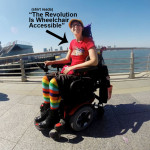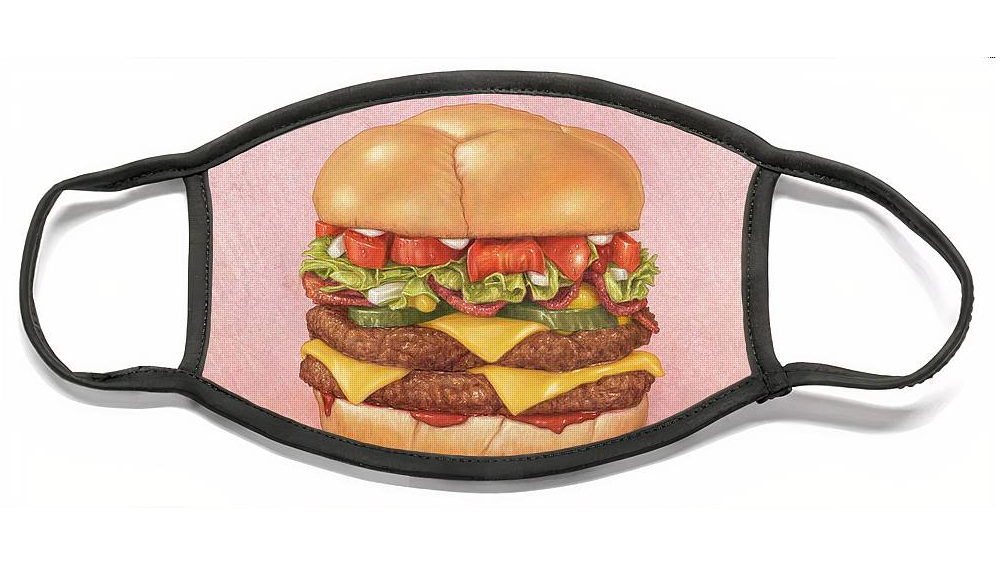
By Michele K
In my experience when you’re disabled (and proud #represent ) but require home health care services, it seems like you can’t go 6 months without having to fight against cuts in funding, Which means, that every damn year, we are fighting against attacks (from democrats and republicans) on our literal freedom. Do you know what it’s like to fight to not be forced from your home and into nursing homes & institutions? It’s exhausting, it’s terrifying and it’s normalized. As of early April 2022, I have been signal boosting #FairPay4Home Care, which works to solve the home health care worker shortage crisis by ensuring a fair wage (not poverty wage) for HHC workers, More workers in the HHC industry, less disabled and/or seniors forced from our homes. Our struggles are connected.
Getting involved in the movement has been simultaneously fulfilling as I am currently mostly bedbound (though working on getting stronger) and sometimes feel isolated from the world, so it has been nice to feel a part of something bigger than myself and my friends. But at times it was also triggering (in the actual psychological sense of the word, not as in a synonym for merely bothered as it’s often misused). No one deserves to be forced from their homes against their will and into institutions, where daily life is a dehumanizing assembly line. And that’s just when we’re not in a pandemic. When we are, such places can be a literal death trap and nightmare.
An experience, I unfortunately know all to well, as I spent several months in three different nursing homes from October 2021 to January 2022. Not only was I malnourished, not only did I at times experience abuse and neglect, but as I mentioned in the previous article which was somewhat controversial, I (like many of those stuck in institutions) was not able to remain vegan.
And because at that point, I had already lost far too much weight as it was in these various hospitals and institutions, I had little choice but to consume animals like chicken and fish. And at first, it broke my heart more than I can say, but like many toxic experiences that occurred during that time, my way of getting through things was to shut down as I was essentially in survival mode. And it got to the point where I was so closed off emotionally, that after a month, I ate chickens and fish without much of a thought. To be clear I didn’t take pleasure in it. I didn’t take pleasure in much during that time. It was eat or starve – so I ate. But I never felt good about it. I just shut down from those feelings of sadness, the knowledge that I am eating a fellow being. Nope not a being. Just food.
When I got out of the nursing home, my health was not stabilized. In fact, it was worse. I had actually gotten covid while I was there because at first there was one case, then there was a whole floor of covid, and then it was on three floors of covid (including the floor I was on). And still, the owners of the nursing home kept accepting new people even though the staff was already overwhelmed and burnt out and could not keep up with the numbers that we had. In many cases, sometimes on a daily basis, the staff punched down. I remember being so dehydrated at one point that I collapsed on the floor, only to be yelled at because they didn’t have time for “these games”. It was not a game. So when I came home I was not only messed up physically but also mentally. I had experienced trauma and had a lot of healing to do. Anyone who knows that the path to healing from trauma is not an easy one because you have to remember, feel, process and grieve – and I had gone to great lengths to avoid such things, I still get flashbacks and it remains one of the hardest things I have ever had to get through.
That said, one of the many good things about being home (besides being in a safer environment) was that I was able to eat whatever I wanted – within the realm of my allergies and dietary intolerances. At first I was concerned that going back to vegan “too quickly” might be too much of a shock for my body which was already pretty messed up at this point in time. In addition, one doctor had told me that eating soy might exasperate my thyroid issues, and so part of me felt scared about returning to tofu. I was also experiencing these really strong cravings for salmon that I initially didn’t understand. What if I can’t be vegan for medical reasons and if I stop eating fish I’ll get even worse? I realize now this thinking was partially rooted in trauma. With trauma responses, you experience really intense depression and intense anxiety, so making changes (even good ones) can feel incredibly overwhelming. But at one point in my recovery, as I started to heal, I reconnected to the realization that the salmon I was eating was not just “food” but this was a being, this was a life that was not mine to take. And when I reconnected to that, I cried. Like me, this was a life that deserved freedom and safety. But furthermore, I realized I don’t need to eat the fish anymore. I am no longer in survival mode. I am safe now and I can let it go. So, I looked for other sources of Omega 3 (hemp hearts and jackfruit according to the internet) and it felt safe to make the change.
Just as it was important for me to honor the life of the fish, it was also important for me to honor my feelings on the matter and what was needed to feel safe. Instead of just trying to ignore the feelings or even chastise myself for having them in the first place. My heart is vegan, why am I craving salmon?! I honored those feelings and looked at why I was having the craving in the first place. Turns out as my body was quite malnourished from my time in the various institutions, I needed more calories, more iron, omega 3, and protein than what I was eating as my body needed to heal. Once I ate more of what was needed, the cravings went away. It was never that I wanted salmon per se, but rather that my body just wanted the nutrients that salmon had.
Last week was the first week since I’ve been home that I was fully vegan. I am feeling better physically (as my body tends to feel better when I eat a fairly whole foods vegan diet, It has a hard time absorbing nutrients from animals, so I tend to do better plant-based.) I am also feeling better emotionally. I am still healing from the trauma which is a work in progress. I’ve been having an increase in flashbacks since becoming more involved in #FairPay4HomeCare but I try to do something in the morning and then leave it alone for the rest of the day in the name of self-care, and honor the feelings in between. But I am also getting involved with activism again, starting to create again, listening to music more and reconnecting to my passions, and living accordingly to what I feel in my heart – which includes veganism. And this is key – to know how to feed my soul, and nourish my body, especially as I continue to heal and fight with my people to remain in our homes. For, in the end, we all just want to be free.

This essay originally appeared on Rebelwheels’ Soapbox in 2022.
 Michele Kaplan is a queer (read: bisexual), geek-proud, intersectional activist on wheels (read: motorized wheelchair), who tries to strike a balance between activism, creativity and self care, while trying to change the world.
Michele Kaplan is a queer (read: bisexual), geek-proud, intersectional activist on wheels (read: motorized wheelchair), who tries to strike a balance between activism, creativity and self care, while trying to change the world.




